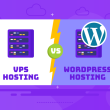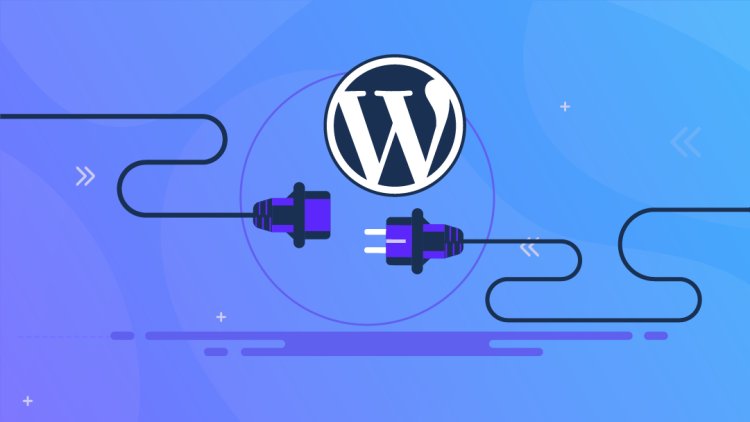Creating a successful web presence is so much more than creating a website. The chances of reaching an audience greater than 4.7 billion active users globally are slim unless your content becomes visible to them. Naturally, the ability to optimize your website for more than one language will surely increase the visibility and engagement of your WordPress website. And here comes WordPress multilingual SEO. Developing an SEO strategy that considers different languages and cultures holds significant value across borders.
In this article, we will explain WordPress multilingual SEO, its benefits, and actionable strategies for driving your website to rank effectively in every language. Let’s dive into the details of how to make your WordPress site reach its fullest potential in a globalized world.
What is WordPress Multilingual SEO?
WordPress multilingual Search Engine Optimization is the process based on which one gets a WordPress well-ranked in many languages naturally. Unlike standard SEO searches, multilingual SEO, on the other hand, completely focuses on the creation upon which the various linguistic and cultural groups would prefer to find what they might be looking for in whatever is there. It might be more correct to say “Localization” rather than translation. You have to adapt something to your content to fit the preferences and behaviors most wanted.
Localization involves everything from keyword adaptation to imagery that makes your website’s content culturally relevant to the intended audience. For example, a term or product name might perform well in English but might need modification to fit the context of a French or Spanish-speaking market. Localizing content elevates the user experience and shows respect for cultural diversity.
The inclusion of the URL structure, hreflang attributes, and multilingual sitemap encompasses the technical SEO features under WordPress multilingual SEO. These features help search engines understand your website’s multilingual structure, avoiding duplicate content and showing users the most relevant version of your site. This will allow search engines and visitors to surf your site easily, ensuring better overall performance in global markets.
Benefits of Implementing Multilingual SEO WordPress

Taking your WordPress site multilingual can really open up your online reach in new ways. Moving into a multilingual approach lets businesses communicate with users in every corner of the globe and encourages engagement, ultimately enhancing search engine rankings. We are going to discuss below some of the major benefits:
Localize Content
It means more than just translating several texts; it’s about adapting your website content to each target audience’s cultural and linguistic peculiarities. For example, idioms, humor, and even color schemes can be so different from culture to culture. A localized website looks more authentic and relevant for users, which builds user trust and engagement. If you speak the language of your audience, you retain visitors for a longer time, not just attract them, which creates long-term relationships.
Improve User Experience
Smooth user experience is a cornerstone of effective SEO, and multilingual capabilities enhance that many times over. When users can easily navigate a website in their native language, they’re more likely to stay longer, engage more, and convert. WordPress plugins like WPML and TranslatePress help make this seamless and intuitive for the user by providing language switchers and consistent formatting across translations.
Boost Credibility With Search Engines
Search engines love websites that can easily inform them relevantly. By performing multilingual SEO, you are conveying to search engines like Google that your website truly serves varied audiences’ needs. This, along with a WordPress VPS, adds to the credibility of their algorithms, strengthening your rankings across different regions and allowing you to outcompete others in global markets.
Demonstrate Cultural Understanding
By conforming your content to cultural values, you show your audience that you respect and understand their peculiar way of thinking. This cements brand loyalty and helps build a positive brand reputation in new markets. For example, recognizing local holidays or trends in your content can make your website more appealing to certain demographics.
Grow Visibility
By implementing multilingual SEO, your site opens up to other target markets that otherwise wouldn’t even realize your existence. Ranking in more languages can boost your website to the top of the SERPs in different regions, impressively boosting traffic. Such visibility will clearly boost conversion rates, greater brand awareness, and a superior global online presence.
Boost Your Multilingual SEO with Reliable WP Hosting!
Ready to take your multilingual WordPress site to the next level? Successful multilingual SEO starts with a hosting solution that ensures seamless performance for global audiences. UltaHost offers optimized WP Hosting with multi-region compatibility.
How To Implement an Effective SEO Multilingual WordPress Strategy?
Transitioning to a multilingual SEO strategy requires careful planning and execution. Focusing on certain key elements will help ensure your WordPress website serves multiple linguistic audiences effectively. Here is how you get started with your multilingual SEO strategy:
Identify Your Target Markets
Knowing your audience is the foundation of any successful SEO strategy. First, you must establish what regions or countries you will target and research their languages, cultural preferences, and online behaviors. This will help you decide which languages to focus on and how to tailor content for each. Tools like Google Analytics and market research reports can help you learn more about your existing audience and potential markets.
Conduct Comprehensive Keyword Research
Keyword research for multilingual SEO goes beyond mere direct translations; it involves the usage of keywords that are locally relevant and popular among your target audience. Analyze how keywords perform in different languages using Semrush or Ahrefs. Remember, a keyword in English may have completely different equivalents in another language. Long-tail keywords and search intent are in focus to make sure that your content corresponds to the user’s needs.
Pick the Right URL Structure for Different Languages
The structure of your URLs is important for implementing your multilingual site. A number of approaches are available to perform this:
- The Importance of WordPress Slugs: Use descriptive and language-specific slugs for better SEO performance. For example, use “/es/productos” for Spanish instead of “/en/products.”
- Add the hreflang Attribute: This is the HTML attribute that conveys to search engines both a page’s language and geographically targeted audience. This will help you avoid duplicate content issues and ensure users see your site.
- Create a Multilingual XML Sitemap: An XML sitemap will help a search engine index your site effectively. Create your sitemap, including all the language versions, and submit it through Google Search Console for better results.
SEO Plugin and a Translation Plugin
Leveraging the right plugins makes it easy to implement multilingual SEO. Popular options include:
- Yoast SEO or All-in-One SEO: These plugins allow you to set meta tags, titles, and descriptions in several languages.
- WPML or TranslatePress: Either of these translation plugins organizes translations and presents them smoothly, ensuring a perfect multilingual experience.
Localize Your Content
Ensure that your translations are accurate and culturally adapted. Avoid direct translations, as they can miss nuances. Invest in fast WP hosting and professional translators, or refine your localized content using tools like Phrase.
Don’t Use 100% Automatic Translation
While automatic translation tools like Google Translate save time, they usually lack accuracy and cultural sensitivity. Instead, opt for human translators or hybrid solutions that combine automation with manual editing for quality assurance.
Build Backlinks From Reputable Sources
Backlinks continue to be critical ranking factors. To boost your website’s authority and visibility, focus on building links from websites in the target regions. Partner with local influencers, write guest posts, and contribute to regional forums.
Conclusion
WordPress Multilingual SEO is not an addition from the technical point of view today but rather an important strategic step in a globalized world. It’s about opening your website to new markets and more diversified audiences by optimizing for locality and user experience with great practices such as proper keyword research and correct structuring of the URLs. Besides, setting up a great multilingual SEO approach will raise the bar on how visible your website is around the globe and let users trust and share a connection with your brand culturally. Take the first step today and make your WordPress site truly international.
Implementing WordPress multilingual SEO can boost your global visibility. For optimal performance and faster international rankings, consider UltaHost’s SEO server hosting solutions, designed to seamlessly support your global SEO efforts.
FAQ
What is WordPress Multilingual SEO?
It’s optimizing a WordPress site for search engines in multiple languages to reach diverse audiences.
Why is localization important?
Localization adapts content to match cultural and linguistic preferences, boosting trust and engagement.
What are the benefits of multilingual SEO?
It improves user experience, credibility, and visibility and helps expand into global markets.
How do I set up URLs for different languages?
Use language-specific subdirectories (e.g., “/es/”), hreflang tags, and multilingual sitemaps.
Should I use automatic translation tools?
Avoid relying solely on them; combine machine translation with manual editing for accuracy.
What plugins are useful for multilingual SEO?
Yoast SEO or All-in-One SEO for optimization, and WPML or TranslatePress for translations.
How do backlinks help in multilingual SEO?
Backlinks from reputable, local sources boost authority and rankings in target regions.














